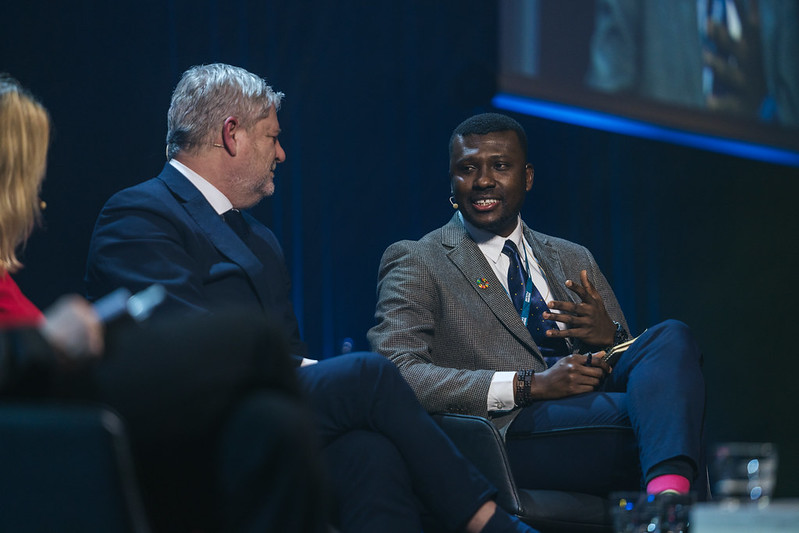
by Larry Ibrahim Mohammed, Ph.D. Research Fellow, UiT – The Arctic University of Norway
In October 2022, the Norwegian government announced that it would charge tuition fees for non-EU/EEA international students. As someone who first arrived in Norway from Ghana as an international student, this news was disturbing. I thought this would be the final nail in the coffin of the dreams of many potential international students.
My decision to come to the Arctic city of Tromsø in Norway was influenced by the fact that Norway offered a tuition-free education. There was no way I could afford higher education if I had to pay thousands of euros to study abroad.
It is noteworthy that Norway’s educational policy towards non-EU students has transformed from a friendly and inviting nation to a state concerned about the level of support it renders to students. In 2015, the government cancelled the Quota system, which supported brilliant students from developing countries to study in Norway on a scholarship. Today, many of the beneficiaries of this program work in different parts of the world, with some teaching as professors in Norway and back in their home countries. Indeed, the first female vice-chancellor of the University of Ghana is one of those beneficiaries.
While Norway has long been known as a tuition-free destination, admitted students must transfer a substantial sum to a Norwegian bank account before a student visa is issued. For me, raising about 123 000 NOK (€12 000) in 2016 as evidence of subsistence could only be possible after a communal appeal for funds. Yet, the Norwegian Minister of Higher Education, Ola Borten Moe, stated, ‘There is no reason to believe that those who come here are the world’s poorest.’ It does indeed feel that the government’s priority is shifting to only attracting the world’s richest to study in Norway. With the introduction of tuition fees, the average fee and subsistence for a social science master’s study program for a year in Norway is about 320 000 NOK (€30,000).
Admittedly, the discussion surrounding the introduction of tuition fees took time to emerge. As far back as 2014, there was a brief debate about the topic, but it quickly succumbed to public pressure. The fact that the measure received enough support from the parliament this time suggests a different story. The war in Ukraine, global food prices and electricity price hikes are other reasons mentioned by the ministry. According to the government, tuition fees will also mean additional revenues to the university. However, the alacrity with which this measure is being introduced had not paid heed to any alternative views. The government had spurned efforts by the Norwegian Association of Higher Education Institutions (UHR) to suspend the measure until an impact assessment could be conducted.
When pressed further, government spokespersons often point to neighbouring countries such as Sweden, Denmark, and Finland as examples of countries that have introduced tuition fees. Yet again, this is only part of the story. Evidence shows that Sweden lost eighty percent of its international students in 2011 when it introduced tuition fees.
With the dire economic situation in the wake of the Covid crisis, Norway stands to lose even more students. It bears mentioning that whiles these countries introduced tuition fees; they have taken steps to attract more international students. For example, the Swedish Institute has the global professional scholarship program for international students from non-EU countries. The Finnish immigration rules allow the duration of a student’s residence to count towards permanent residency status after graduating. So far, all these measures are absent in Norway.
Some opinions are fine with losing non-EU international students. As it currently stands, a full-scale implementation of the tuition fee policy will affect Norway in several ways. Firstly, imposing the tuition fee will prompt students to seek cheaper alternatives elsewhere. They may also go to a country or university where language is not a barrier and may increase their chances for future opportunities. Besides, the educational system is much richer with people from diverse backgrounds than only EU nationals.
Secondly, tuition fees may result in losing already existing teaching jobs. Some courses thrive on international students. The absence of these students will mean that those courses will not run. Already, UiT – The Arctic University of Norway has indicated that its Bachelor of Northern Studies program would not run in the 2023/2024 academic year. This means a reduction in qualified talents coming to the Arctic, something which goes against the Norwegian Arctic policy of keeping people in the North.
It is crucial that the Norwegian government re-evaluate their stands and consider some alternatives as it moves to pass the legislation for this. They should introduce scholarships to support students from deprived backgrounds. The universities in Norway can also adopt a system where students study at their own pace and pay only for the number of credits they can afford to pay in a semester. The subsistence amount and the student visa can be reduced to lower the burden on students who must pay fees. Immigration laws should be improved to allow students from non-EU countries wishing to stay and work in Norway to do so.
The current situation where fresh graduates must document over 200 000 NOK (€20,000) after graduation to live and search for a job is stringent. When these and other suggestions are considered, Norway can improve its reputation as a welcoming and inclusive destination for education.
Larry Ibrahim is a Ph.D. Research Fellow of Comparative Indigenous Studies at UiT – The Arctic University of Norway, Tromsø. Originally from Ghana, he works on Indigenous Peoples’ Self-Determination and their role in renewable energy development (Norway and Canada). Larry believes in the ideals of Global citizenship and making the world a better place for all. He also spends part of his time mentoring young people.